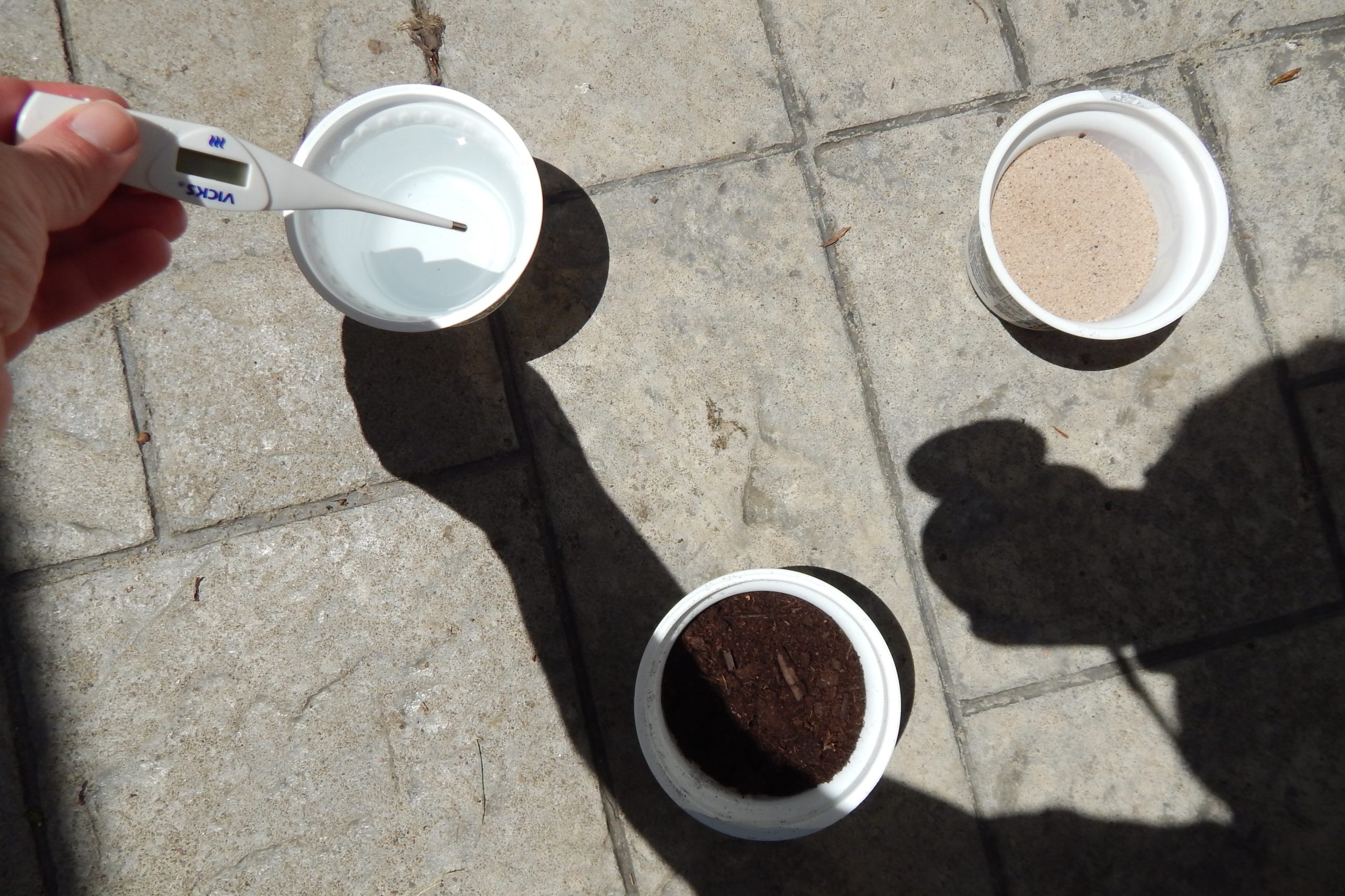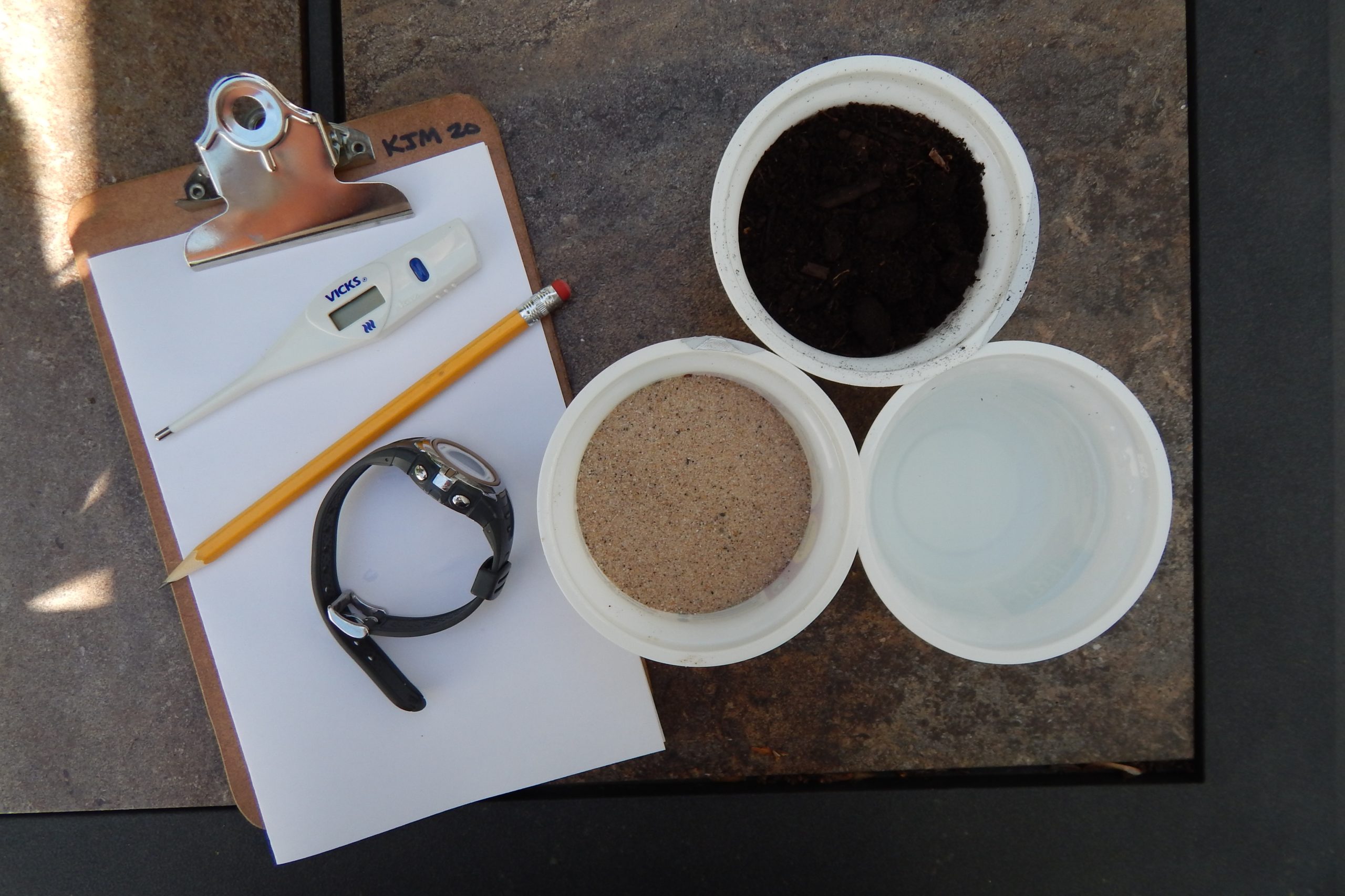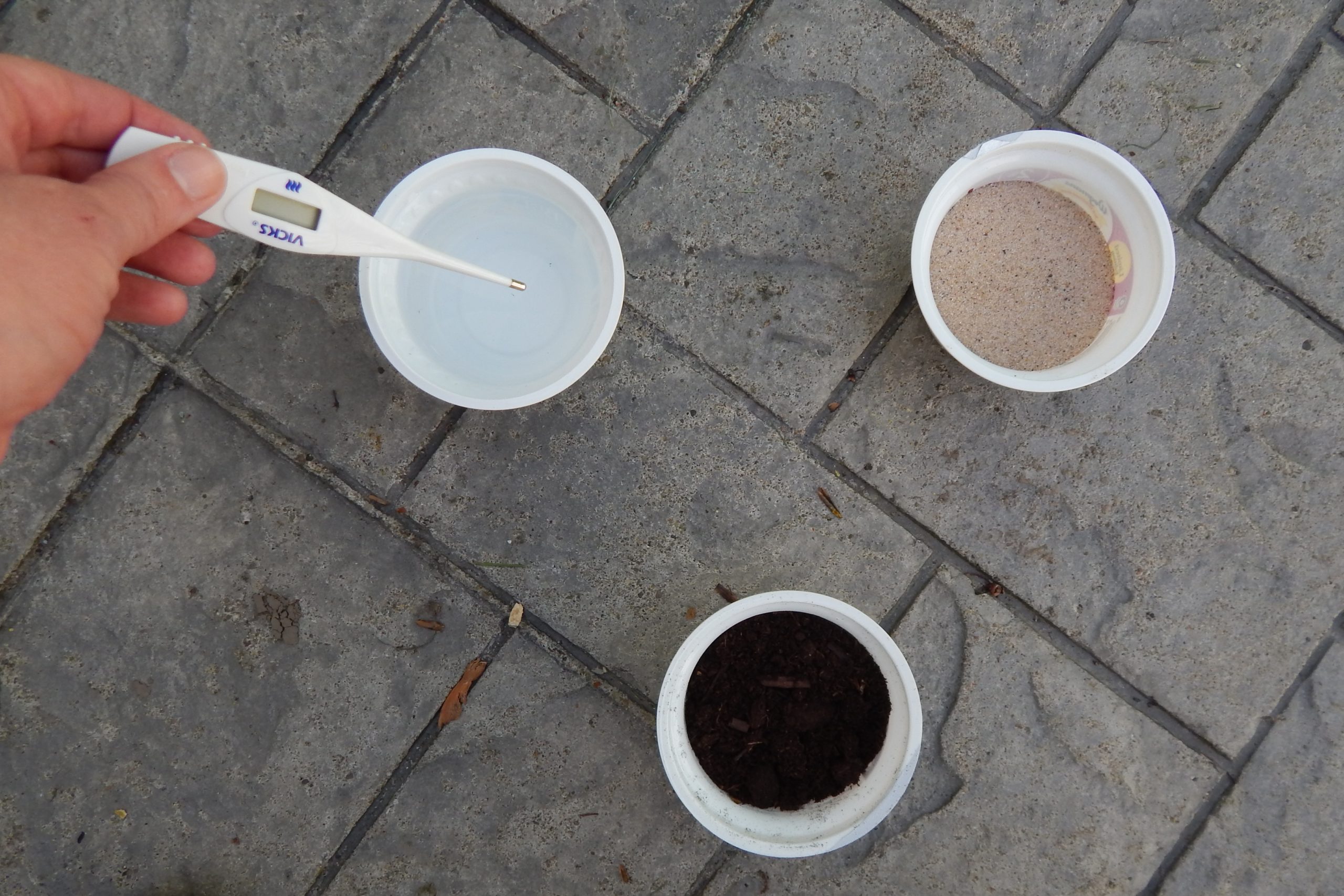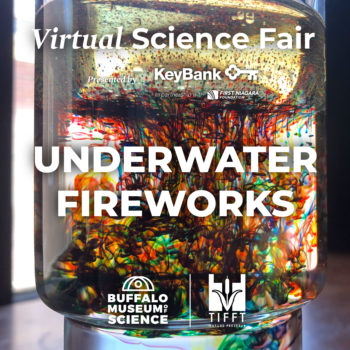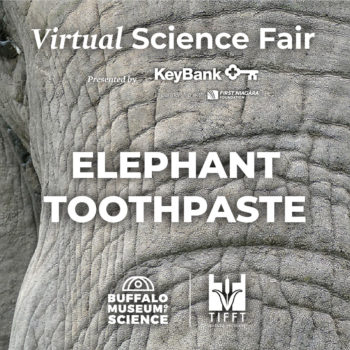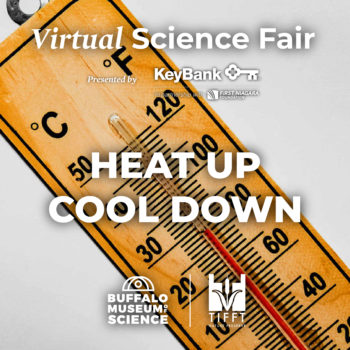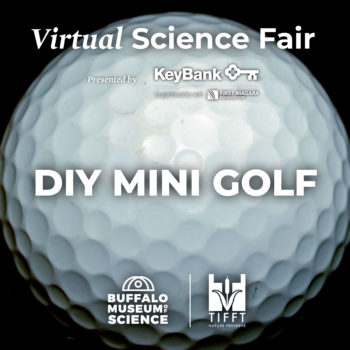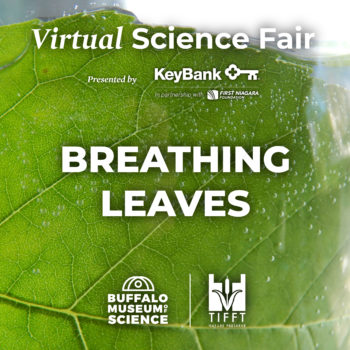Heat Up, Cool Down

Have science fun as a family! Complete activities with parental supervision.
Materials:
- Two to three small containers (we used clean yogurt containers)
- Soil
- Water
- Thermometer
- Paper
- Pencil
- Something to measure time (clock or phone)
- A sunny day
- Optional: Sand
Procedure
- Fill one container with soil, and one container with water. If you have some, fill a third container with sand. All tested substances should start at room temperature.
- Make a chart on the piece of paper to record your temperatures over time. See this sample chart if you need help!
- Make a prediction. In direct sunlight, which substance do you predict will heat up faster? Which substance do you predict will cool down slower? Record your hypothesis.
- Measure and record the starting temperature of each substance 1.) The soil 2.) The water 3) The sand.
- Every 15 minutes, take the temperature of each cup. You will have four measurements for each cup: 0 minutes, 15 minutes, 30 minutes, and 45 minutes.
- Now place all the containers near each other in the shade.
- Record the starting temperature of each material.
- Measure the temperatures of each material every 15 minutes.
- Take a look at the data you collected. Did all the substances heat-up and cool-down the same way? Why or why not?
- Be sure to take a picture or video or even share your data in the Facebook comments on the Buffalo Museum of Science or Tifft Nature Preserve pages!
What’s it all about?
When the sun’s light hits the Earth, it can do a couple of different things. It can be reflected, or bounce back up into space, or it can be absorbed. When the light is absorbed, the light energy turns into heat energy.
Different surfaces reflect light and others absorb it. For example, light colors reflect the light and dark colors absorb it.
How does this affect us here in WNY? Compared to other parts of the country, we tend to be cooler in the summer and warmer in the winter. This is because the surrounding bodies of water (the Great Lakes!). As your experiment demonstrated, water takes longer to heat-up and cool-down than land and this has a huge effect on our Buffalo weather!
Try It!
- Test out some other materials! What kinds of materials do you think would heat up fast? What would heat up slower?
